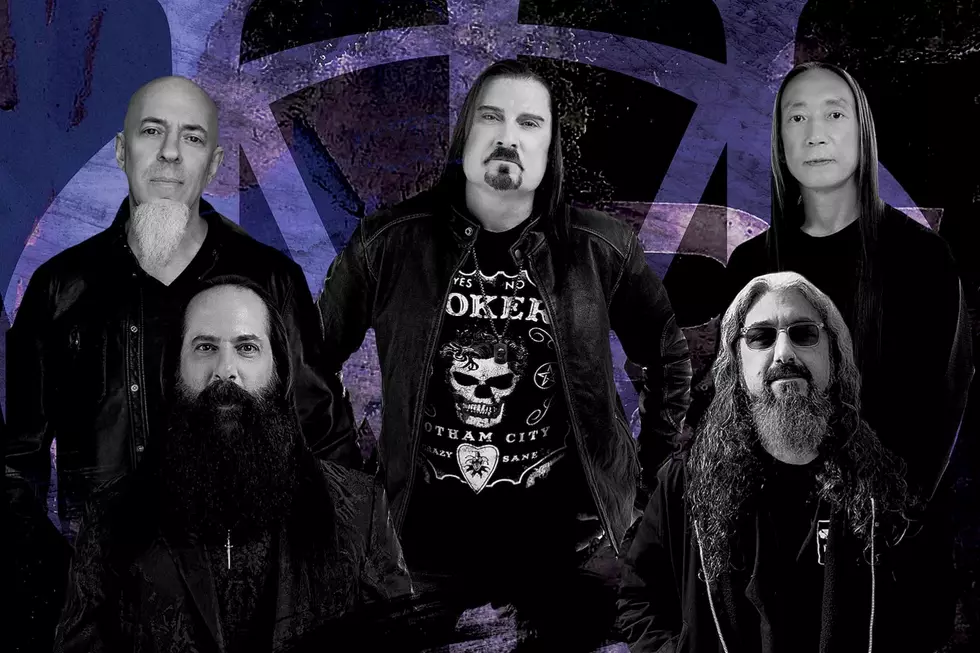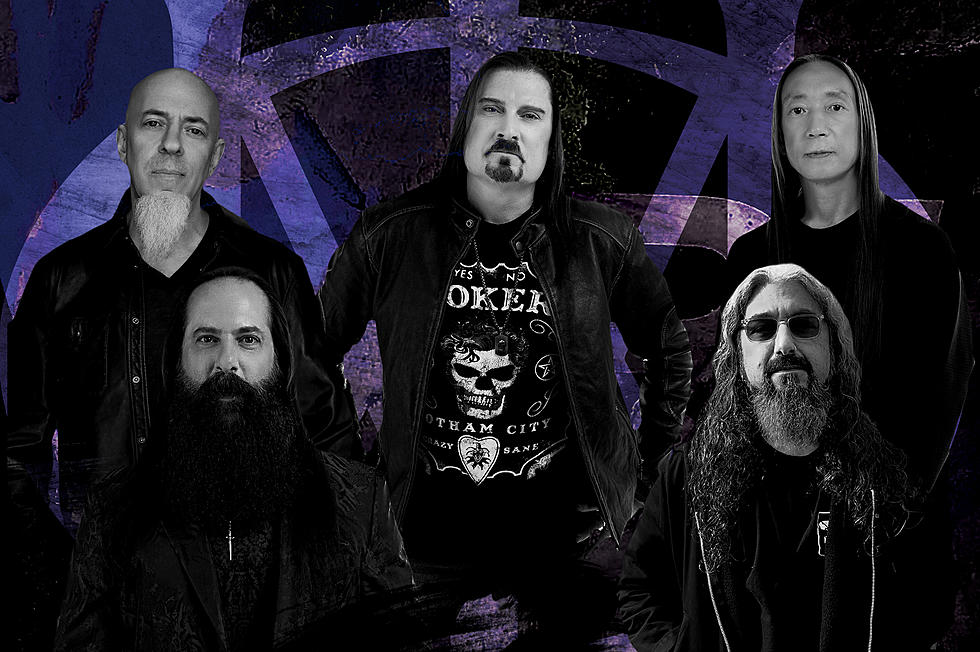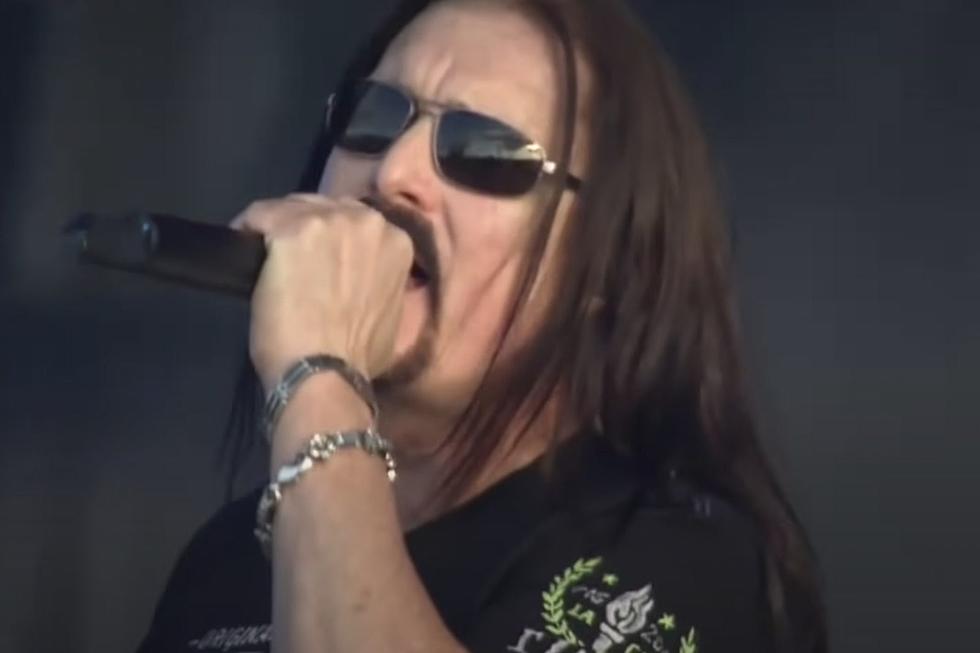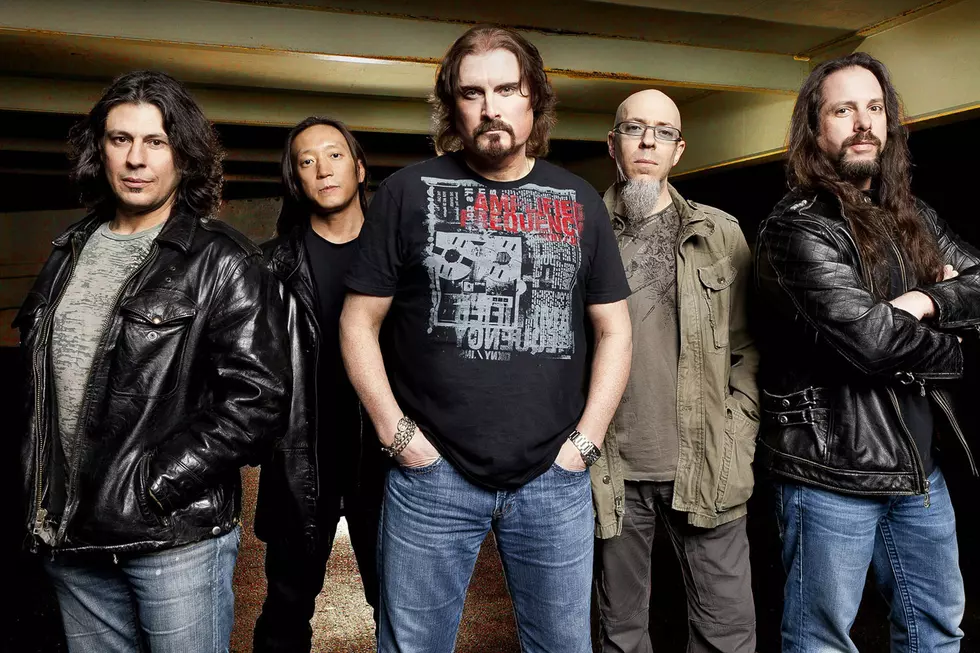
Dream Theater’s John Petrucci Explains Classic Rock Influences, Pushes New Drummer to the Limit on New Album
As Dream Theater prepare to release 'A Dramatic Turn of Events,' their 11th studio album, and first without founding drummer Mike Portnoy, we spoke to guitarist John Petrucci about the classic rock bands that influenced his musical development. He also talked about covering albums by artists such as Pink Floyd, and let us in on the band's future touring plans.
So, early in your life, what music did you listen to?
It started with liking classic rock. Where I lived, on Long Island, you had the radio stations that always played Led Zeppelin and Pink Floyd, Black Sabbath and AC/DC and all that. I grew up on all that stuff. I got turned onto bands -- you know, the first time I heard Rush, the first time I heard Yes. Then, my mind started to want to connect and reach out to some other things. Then, Iron Maiden came along, and Metallica, and all this other stuff.
Did you consciously decide to blend metal and progressive rock in your own music?
I don't think we really thought about it that way. It's a funny thing, because we were definitely into playing rock music, for sure. You know, as kids were weren't jazz musicians or anything. But, the circle of friends and the neighborhood I lived in, we were really big Rush freaks and Yes fans. We would listen to 'Close to the Edge' and 'Hemispheres' and '2112' -- the more artsy, progressive stuff. Some of the guys were into King Crimson and Genesis and all that.
At the same time -- as we started to really get better on our instruments -- we wanted to do things that were more challenging. So it turned into the Dixie Dregs, Al Di Meola and Return to Forever. You know, all this shredding, fusion kind of stuff. So, by the time we got together to write, we sort of just had this combination of influences -- hard rock and metal. But our minds were also engaged with this more complex, kinda artsy sort of music, so it just came together that way.
When you write these long, epic songs, do they come to you all at once, or do you paste together different pieces of music you've written separately?
Well, we really don't work that way. We try to have a direction, for sure. We kind of know what we're getting ourselves into. I think that, to take different incongruent pieces and mix them together, that can be done, but it can also tend to be not so musical. So we always try to have continuity, to be musical and have themes that recur and are embedded in some of these other parts, with other instruments or melodic sources, such as vocals. So, there definitely is a plan. It's not a haphazard kind of thing. Whether or not we know how long it's going to be when we're actually done is another story. But we can kind of tell when we're on the road to that sort of epic writing, or maybe towards something that's a little simpler.
We certainly didn't mean to imply it was haphazard...
Oh, I know. Yeah it's kind of like, not that our music is like that, but I compare it to classical music. When I listen to symphonies, or long pieces of music, there are so many different moods and movements, and things that are really beautiful going to something with a lot of tension. Also, something that's very simple, you know, in the same song, there can be something very technical or intense. And all of those classical musicians need to be able to do all of that within this one song, and it takes you on a journey. I think that's what writing these sort of epic, proggy pieces is all about. It's definitely a journey, and you need to be able to cover all these different elements in order to tell a story, so it doesn't come across as some monotone thing. That's the same feeling that I get when I listen to classical symphonies and pieces.
Are you a big fan of classical music, then?
It's not something that I listen to all the time; but I do, and I have, and it's an influence on me for sure. Music doesn't have to sit within the confines of pop structure, you can really make stuff that's more visual. Another comparison I like to make is to a soundtrack. I love all of the John Williams stuff, the Hans Zimmer stuff -- it's so intense. That kind of mentality, that you're telling a story, you're painting a picture with music, and it's not within the confines of a certain time limit or structure or form, that's part of it, as well.
How is the new album coming?
We're just wrapping it up here in the studio -- got a couple of solos, a couple of little vocal things we're finishing. I'm really excited. We started in January, it's been a lot of work, and I'm really happy with the way it came out. It's very intense and really cool. I think we made a lot of great music. I can't wait for it to be done and mixed and then get it out there to the world.
(Update: read more about the new album, 'A Dramatic Turn of Events,' right here)
How did the recent lineup change affect the songwriting responsibilities?
We didn't write the music with [new drummer] Mike Mangini. We decided to go in and just write it amongst ourselves without a drummer [to] get more in touch with the intimates of the compositional process that every guitarist, keyboard player and bassist does when they're sitting around in a bedroom or hotel room or studio. Just writing and pulling out the best music that you can, exploring different areas. We decided to do it that way, which was great -- a really great environment for being creative.
So, did you end up writing things that were really hard for him to play?
It's funny that you say that, because I programmed all the drums with a program, which was a lot of fun. I came up with some wicked stuff. When we finished, I sent it, asking "Is this something that you can actually play? I don't know, I'm not a drummer, is this a physically possible thing?" But then he came in a couple of months later, and here he was, a human being doing this stuff. I was blown away. It's fun doing that kind of thing because you can just come up with stuff that's beyond your wildest imagination, drum-wise, and then make it happen in real life.
You've covered a lot of classic rock albums start to finish in concert. Do you have any plans on what ones you'd like to do next?
There's no plans right now to do one, but certainly there's ones that would be great. With all of our influences growing up, there's so many great albums that could be done, but right now we're really focused on this record and the tour that follows. I haven't even thought about other people's music much lately. But, again, I mentioned the bands that we were influenced by, it would be great to do a Rush album, or something like that. We'll see.
What do you learn from learning all the parts, for, say 'Dark Side of the Moon'?
It was so much fun to do, such a blast. When I was learning the songs on that album, it was really cool. First off, I didn't realize how much I knew them all. I barely had to learn anything, I was just kind of playing along. Second, you begin to notice all these different things you didn't notice before. You know, as a guitar player, "Wow, I didn't notice that overdub before, or that acoustic part," or whatever. It was really cool. I can't really say we did our own version of that one, we sort of just did it like the album. We respected the way that album was done and tried to do it as close as we could.
What plans do you have in mind for your next round of touring?
We have thought about the tour. The first tour we're doing is in Europe, a festival tour with some headlining dates, as well. We're playing some interesting places like Russia, Kiev, Rome, everything like that. Initially, it's us getting out there. We'll play a song from the new album, but it will be focused more on the festival scene, and people's introductions to Mike Mangini. When we tour in the fall in support of the record, we'll initiate some of the new concepts, new imagery, new lighting and video presentations, and, of course, the new songs. It'll be something different at that point.
Watch Dream Theater Perform Pink Floyd's 'Time'
More From Ultimate Classic Rock









